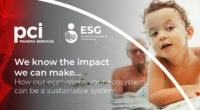Bio/Pharma’s Top 10: Top Deals Thus Far in 2023
Analysis of the top 10 mergers and acquisitions among bio/pharmaceutical companies thus far in 2023. Which companies and deals are most noteworthy and leading the way?
Top deals thus far in 2023
Pfizer’s pending $43-billion acquisition of Seagen. The number one deal thus far in 2023 is Pfizer’s pending $43-billion acquisition of Seagen (formerly Seattle Genetics), a Bothell, Washington-based bio/pharmaceutical company specializing in antibody-drug conjugates (ADCs) and drugs for oncology. The deal, announced in March (March 2023), would provide Pfizer with four approved medicines that are indicated across solid tumors and hematologic malignancies, including three ADCs: Adcetris (brentuximab vedotin), Padcev (enfortumab vedotin), and Tivdak (tisotumab vedotin). Seagen’s commercial portfolio also includes Tukysa (tucatinib), which was approved earlier this year (January 2023) for treating certain types of colorectal cancer in combination with trastuzumab. Seagen expects to generate approximately $2.2 billion in 2023 revenues from these four products.
Clinical development programs are ongoing for each of these medicines for potential new tumor types or expanded indications in earlier lines of therapy, with further developments expected annually through 2027. Seagen is also advancing technologies capable of potentially generating multiple investigational new drug applications, including new linker/payload technologies for ADCs and other antibody platforms that directly engage the immune system to destroy tumors, such as bi-specific antibodies. Overall, in announcing the acquisition, Pfizer says it believes Seagen could contribute more than $10 billion in risk-adjusted revenues in 2030, with potential significant growth beyond 2030. The companies expect to complete the transaction in late 2023 or early 2024.
Amgen’s pending $27.8-billion acquisition of Horizon Therapeutics. Although Amgen’s pending $27.8-billion acquisition of Horizon Therapeutics a Dublin, Ireland-headquartered bio/pharmaceutical company specializing in rare diseases, was announced late last year (December 2022), it makes the list as the fate of the acquisition will likely be decided this year (2023). Last month (May 2023), the US Federal Trade Commission filed a lawsuit to block the acquisition on the grounds that the acquisition would create a concentrated position in two disease areas: thyroid eye disease and chronic refractory gout, which respectively represent the therapeutic areas for Horizon’s two top-selling products: Tepezza (teprotumumab-trbw) for treating thyroid eye disease and Krystexxa (pegloticase) for treating chronic refractory gout. Tepezza (teprotumumab-trbw) is Horizon’s best-selling drug with 2022 sales of $1.965 billion. Krystexxa (pegloticase) is the company’s second best-selling drug with 2022 sales of $716 million.
The FTC says the acquisition would enable Amgen to use rebates on its existing blockbuster drugs to pressure insurance companies and pharmacy benefit managers (PBMs) into favoring these two products due to a lack of competition in these two disease areas through cross-market bundling, which involves conditioning rebates (or offering incremental rebates) on products in exchange for giving drugs preferred placement on insurers’ and PBMs’ lists of covered medications in different product markets. The FTC said that such cross-market bundles may make it difficult, if not impossible, for smaller rivals who are developing drugs to compete against Tepezza and Krystexxa to match the level of rebates that Amgen would be able to offer. Amgen disputes the FTC’s concerns over potential cross-market bundling. A decision on the acquisition is still pending.
Merck & Co.’s pending $10.8-billion acquisition of Prometheus Biosciences. In April (April 2033), Merck & Co. agreed to acquire Prometheus Biosciences, a San Diego, California-based bio/pharmaceutical company, for approximately $10.8 billion. Prometheus is focused on the development of precision medicines for treating immune-mediated diseases and companion diagnostics. Its lead drug candidate is PRA023, which is being evaluated for various autoimmune conditions that include ulcerative colitis, Crohn’s disease, and systemic sclerosis-associated interstitial lung disease. PRA023 is a humanized monoclonal antibody directed to tumor necrosis factor (TNF)-like ligand 1A (TL1A), a target associated with both intestinal inflammation and fibrosis. Prometheus has a precision medicine platform, Prometheus360, which combines machine learning-based analytical approaches with a gastrointestinal bioinformatics database to identify therapeutic targets and develop therapeutic candidates to engage those targets. The deal is expected to close in the third quarter of 2023.
Takeda’s $6-billion acquisition of Nimbus Lakshmi. In February (February 2023), Takeda completed its acquisition of Nimbus Lakshmi, a subsidiary of Nimbus Therapeutics, a Cambridge, Massachusetts-based clinical-stage bio/pharmaceutical company, in a deal worth up to $6 billion ($4 billion at closing and $2 billion in milestone payments). The key asset of Nimbus Lakshmi is a Phase II drug candidate (TAK-279) for treating autoimmune diseases. The oral, selective allosteric tyrosine kinase 2 inhibitor is being evaluated for the treatment of multiple autoimmune diseases following successful recent Phase IIb results in psoriasis (as reported on December 13, 2022). The drug candidate is anticipated to enter Phase III in psoriasis in 2023. It is in an ongoing Phase IIb study in active psoriatic arthritis, and Takeda plans to investigate it for the treatment of inflammatory bowel disease and other autoimmune diseases. With the closing of the acquisition, Takeda paid Nimbus $4 billion upfront, and Nimbus is eligible to receive two milestone payments of $1 billion each conditioned on TAK-279’s approval and TAK-279 achieving annual net sales of of $4 billion and $5 billion, respectively. Nimbus Therapeutics, the former parent company of Nimbus Lakshmi, retains ownership of and continues to advance a portfolio of therapeutics for cancer, autoimmune diseases, and metabolic disorders, including NDI-101150, which is being evaluated in a Phase I/II study in patients with solid tumors.
Astella Pharma’s pending $5.9-billion acquisition of Iveric bio. In April (April 2023), Astella Pharma agreed to acquire Iveric bio, a Parsippany, New Jersey-based bio/pharmaceutical company focused on ophthalmology, for $5.9 billion. Iveric bio’s lead drug candidate is avacincaptad pegol for treating geographic atrophy, a chronic progressive degeneration of the macula as part of late-stage age-related macular degeneration. The company announced in February 2023 that the US Food and Drug Administration accepted the company’s new drug application for the drug. The drug was granted priority review with a Prescription Drug User Fee Act goal date of August 19, 2023. The pending acquisition fits one of Astella’s five areas of therapeutic focus in the company’s growth strategy: developing treatments for vision loss, blindness, and regeneration. The companies expect to complete the acquisition in the second quarter of Astellas’ fiscal year 2023 (third calendar quarter of 2023).
Sanofi’s $2.9-billion acquisition of Provention Bio. In April (April 2023), Sanofi completed its $2.9-billion acquisition of Provention Bio, a Red Bank, New Jersey-based bio/pharmaceutical company focused on immune-mediated diseases. Its lead product, which was approved by the US Food and Drug Administration in 2022, is Tzield (teplizumab-mzwv) for delaying the onset of Stage 3 Type 1 diabetes (T1D) in adults and pediatric patients aged eight years and older with Stage 2 T1D. Tzield is also in late-stage clinical development for the treatment of pediatric and adolescent patients that are newly diagnosed with clinical T1D (Stage 3). A Phase III trial is currently underway and top-line results are expected in the second half of 2023. Additional opportunities for the drug include re-dosing and formulation as well as nitew therapeutic indications.
GSK’s pending $2-billion acquisition of Bellus Health. In April (April 2023), GlaxoSmithKline (GSK) agreed to acquire Bellus Health, a Laval, Quebec, Canada-based, bio/pharmaceutical company, for $2 billion. Bellus’ lead drug candidate is camlipixant, in Phase III development, for the first-line treatment of adult patients with refractory chronic cough, defined as a cough that persists for more than eight weeks despite optimal treatment of any underlying conditions or where there is no identifiable underlying cause. The deal is expected to close in the third quarter of 2023 or earlier.
AstraZeneca’s $1.8-billion acquisition of CinCor Pharma. In late February (February 2023), AstraZeneca completed its acquisition of CinCor Pharma, a Waltham, Massachusetts-based clinical-stage bio/pharmaceutical company, in a $1.8-billion deal ($1.3 billion upfront plus potential payments of contingent value rights). The deal was announced in January 2023.
CinCor is focused on developing drugs for resistant and uncontrolled hypertension as well as chronic kidney disease. Its lead candidate is baxdrostat in Phase II development for treating treatment-resistant hypertension, primary aldosteronism (a disorder in which adrenal glands make too much of a hormone, aldosterone, which regulates blood pressure), and chronic kidney disease. Baxdrostat is an oral small- molecule inhibitor of aldosterone synthase, the enzyme responsible for the synthesis of aldosterone in the adrenal gland. A Phase III trial for treatment-resistant hypertension is planned for the first half of 2023.
Sobi’s pending $1.7-billion acquisition of CTI BioPharma. In May (May 2023), Swedish Orphan Biovitrum (Sobi), a Stockholm-based bio/pharmaceutical developing drugs for rare diseases, agreed to acquire CTI BioPharma, a Seattle, Washington-based bio/pharmaceutical company developing drugs for blood-related cancers, for $1.7 billion. CTI’s lone product is Vonjo (pacritinib), which is FDA-approved for treating intermediate or high-risk primary or secondary myelofibrosis, a rare form of a bone marrow disorder in adult patients who have platelet (blood clotting cells) levels below 50,000/µL. The drug was granted accelerated approval by the US Food and Drug Administration in 2022. The deal is expected to close in the third quarter of 2023.
Chiesi Farmaceutici’s $1.3-billion acquisition of Amryt Pharma. In April (April 2023), Chiesi Farmaceutici, a Parma, Italy-based bio/pharmaceutical company completed its $1.3-billion acquisition of Amryt Pharma, a Dublin, Ireland-based bio/pharmaceutical company specializing in rare diseases. The deal included $1.25 billion in upfront consideration plus contingent value rights representing an additional approximately $225 million of potential consideration.








